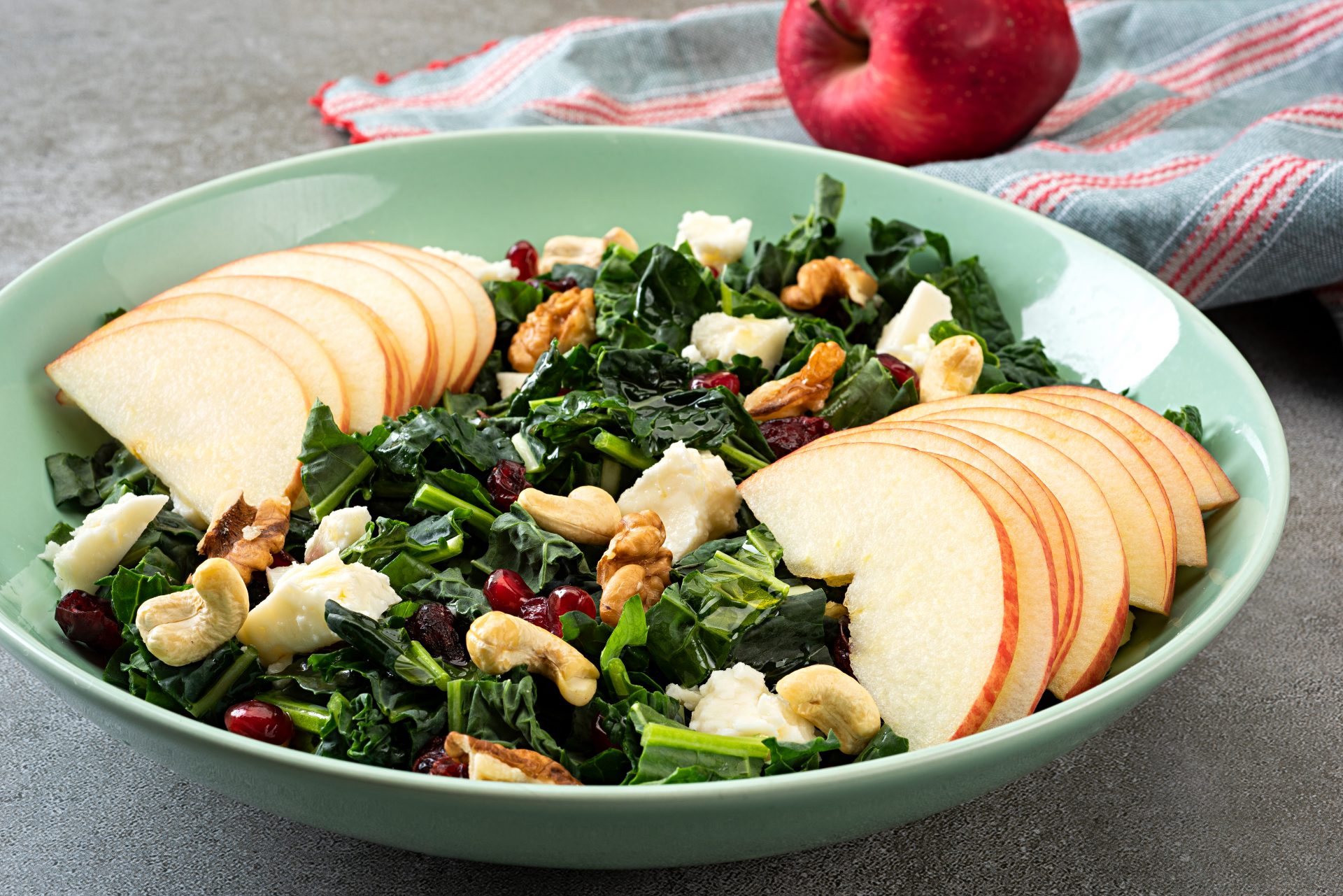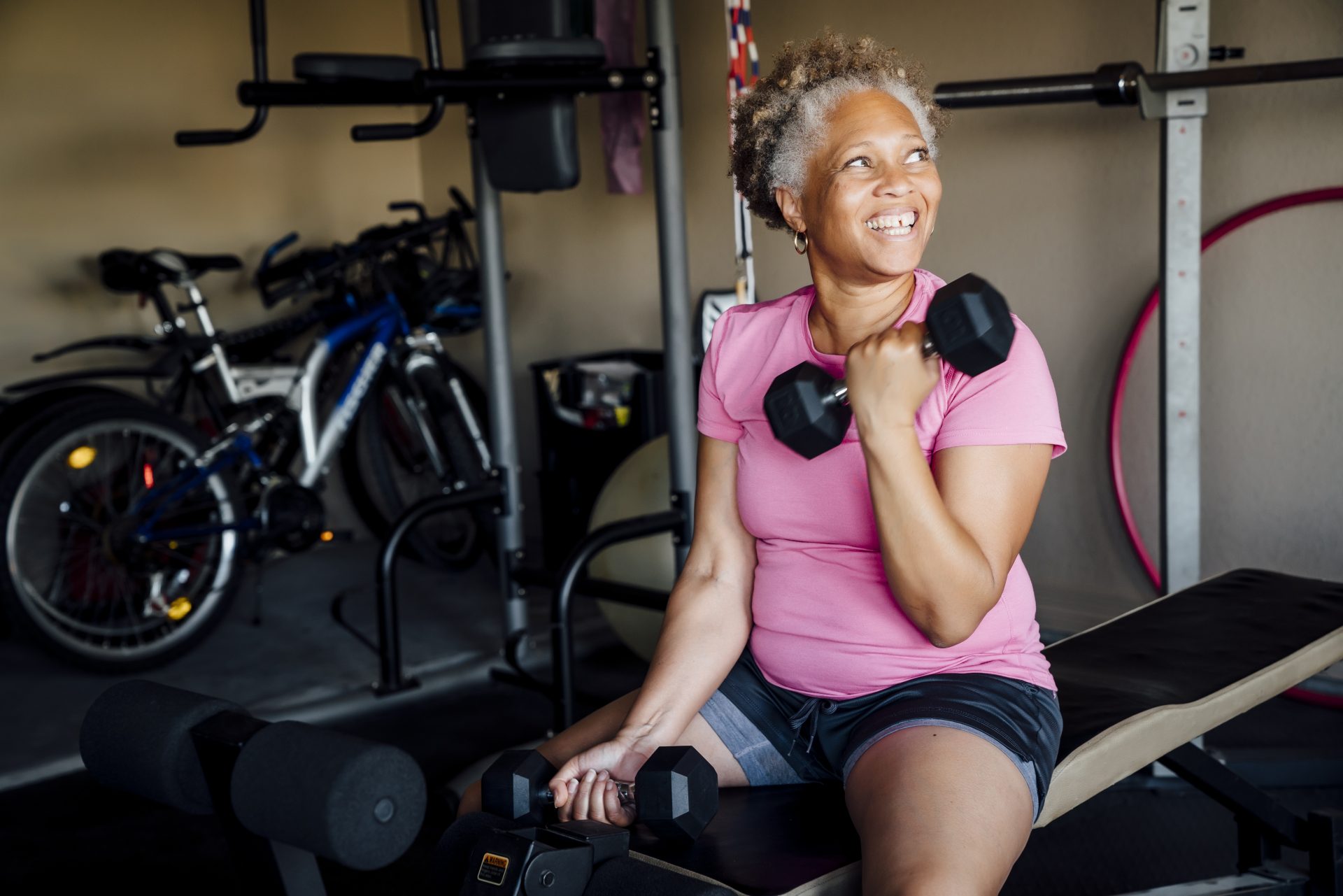Think that as you get older, you need to start cutting down on certain foods? Think again. Here’s why making sure that you eat enough of certain nutrients is the key to staying strong and healthy way into the future.
I eat way more than my mum does. She’s often horrified at just how much food I can pack away in one sitting, while I’m amazed at how someone can possibly feel full from a jacket potato and a couple of sardines. Older people just seem to survive on a lot less, while those of us who are younger and more active perennially feel hungry.
What you eat matters, and how you fuel your body can dictate how well you move, feel and sleep. But do you need to be eating different kinds of foods as you get older to ensure that you’re fit and healthy well into your old age or is it merely a case of changing how much you eat?
According to a 2015 study published in the journal Nursing Older People, older people really do eat less and in doing so, often dramatically cut their intake of calcium, iron, zinc, B vitamins and vitamin E – putting them at risk of ill health. So, here’s how you can improve your diet now to help ensure your future health and how to adapt your diet as you age, according to the experts:
You may also like
At what age does strength training and running become harder?
Priorise protein intake
According to Toral Shah, nutritional scientist, certified functional medicine practitioner and founder of The Urban Kitchen, the official advice on protein consumption is actually pretty low, at just 0.6g per kilo of bodyweight. “If you want to maintain muscle mass or add muscle mass (which is what we all want to do as that’s what metabolically supports us), we need to be eating a little more protein – around 1-2g per kilogram,” she tells Stylist.
As we get older, we lose 1% of our muscle mass every year from the age of 30, “so even if we’re eating protein and doing weights already, we need to be careful to eat all of the different amino acids,” Shah explains. That’s particularly important for plant-based eaters for whom eating the full spectrum of amino acids (the building blocks of protein) becomes increasingly essential.
In our 40s and further towards menopause, protein becomes even more important. Our metabolism and body composition changes, thanks to dipping levels of oestrogen and progesterone (our female hormones). Shah says that one of the things that happens before or around menopause is that our appetites change and many women feel like they can’t eat as much – “and that’s when protein becomes more important. This is still something that we’re learning about because unfortunately, there hasn’t been much research done on menopause and women’s health compared with men’s, but if you want to maintain your muscle mass and stay strong and active into your 70s and 80s, then you need to keep moving and fuelling your body in the right way.”
That, Shah explains,means looking at what you eat as your appetite decreases (especially from the age of 60). “You need to be increasing your protein intake as you get older and that’s partly because your appetite decreases so you may start to miss out on certain nutrients. Loading up on protein-based foods and vegetables is crucial to ensure that you’re getting all the vitamins and nutrients.”
Eat more plants
“To enjoy greater overall health and reduce the risk of many chronic diseases, following a plant-predominant diet has been shown to be beneficial, with the majority of nutrients provided by whole grains, fruits, vegetables, plant proteins, nuts and seeds,” explains registered dietitian Lisa Simon, from Plant Based Health Online. By focusing on the number of plants you consume, you’re more likely to enjoy an antioxidant-rich diet that is protective against harmful free radicals.
“A variety of fruit and vegetables should be consumed, with the emphasis on ensuring as many different colours on the plate as possible. Cooking tomatoes can increase their antioxidant capacity by about 300%,” Lisa points out. Eating sufficient fibre is also important for general health and to reduce the risk of chronic disease, including diverticular disease and colon cancer. “A high-fibre diet will also optimise gut health and this is linked to reduced inflammation, which can reduce the risk of high blood pressure, rheumatoid arthritis and type 2 diabetes.”
The NHS recommends eating five portions of fruit and veg a day, while a 2017 study by Imperial College London and published in the International Journal of Epidemiology found that eating 10 portions a day could prevent around 7.8 million premature deaths each year. The findings were made after analysing 95 separate studies involving two million people’s eating habits, with lower risks of cancer and stroke being linked to green and yellow veg, cruciferous veg (cauliflower and broccoli), apples, pears, citrus fruits, and salad.
Increase your calcium
What you do or don’t eat now really does matter, particularly when it comes to bone health. “In your 20s and 30s, you want to maximise your calcium intake, whether it’s through dark leafy greens, dairy-based foods or sardines because this is when you can maximise your bone health,” says Shah. If you’ve been dieting in your 20s or teens and you’ve not been eating those calcium-rich foods, “your bone health is already going to be poor.” That matters because our bone density decreases as we age, particularly as we get to menopause (because oestrogen helps us to maintain bone mass).
The two things that we all need to be doing now and, well, forever, are eating lots of calcium-rich foods (dairy, fortified nut milks, spinach, kale, oily fish), and doing weight-bearing exercises like strength training, running and walking.

Load up on B vitamins
“Pregnant women and women trying to conceive have increased folic acid needs, which is a type of B vitamin needed to help with foetus development,” says specialist registered dietitian, Catherine Rabess. Folic acid is also important for breastfeeding mums, who also require higher levels of calcium.
Moving towards the menopause, however, our ability to absorb nutrients like B12 reduces, which is why Simon recommends taking “a daily supplement of this micronutrient, regardless of your diet.” She also says that we could all benefit from supplementing vitamin D, too.
Watch your iron levels
Our iron levels are dependent on how much blood we lose during periods, but maintaining your “normal” level is important – even once you stop menstruating.
As well as ensuring that you eat plenty of iron-rich foods like dark leafy greens if you don’t eat meat, it’s important that you always pair iron with vitamin C. That’s because vitamin C makes iron more bioavailable. Shah recommends squeezing some lemon juice or making a citrus-based salad dressing when eating kale, spinach or broccoli to make it even more nutritious.
Reduce the junk food
While no one is suggesting that you should cut any kinds of food out as you get older, it’s a fact that your body becomes more sensitive to sugar and “bad” fats over time. When you’re younger, regular fast food meals might have no impact on you but the older you get, the less sensitive you become to sugar – and that leads to massive peaks and troughs of insulin which leads to energy instability.
It’s also been proven that people who eat a lot of processed junk food tend to have faster ageing chromosomes. Three or more servings of “ultra-processed” food a day has been found to double the risk of DNA strands (telomeres) becoming shortened, compared with people who eat those kinds of goods less frequently, according to a report published in the American Journal of Clinical Nutrition. The longer your telomeres, the younger your biological age; the shorter, the more oxidative damage. Looking at nearly 900 people aged over 55, scientists found that those who ate more of the ultra-processed food were more likely to have a family history of cardiovascular disease, type 2 diabetes and abnormal blood fats. They also tended to eat less fibre, vegetables, nuts and olive oil.
Stay hydrated
“Ensuring adequate fluid intake is important,” says Simon, “with the general rule being 30ml per kilogram of body weight for those over 65.” That means drinking a minimum of 1.8l of water if you weigh 60kg.
Of course, if you’re exercising, it’s hot or you’re under the weather, you may need to up how much you drink but that can be a useful calculation to keep as a base.
Lift weights now and forever

As we age, we become more insulin-resistant. Think of your cells a bit like a lock and glucose as a key. We want to get that glucose (sugar) into the cells so that they can function – we need glucose to move, think and stay alive. When we become insulin-resistant, however, the lock gets rusty and the key can’t really fit anymore… so the glucose starts to build up on the wrong side of the door. That can lead to type 2 diabetes, metabolic disease and unstable energy levels. The more muscle mass you have, however, the more metabolically stable you’re likely to be.
Shah explains that the medical and nutritional communities are still learning about how insulin works but that “for people who want to stay strong and healthy, if you don’t use it, you lose it.” That means fuelling yourself well – not just eating salad – and lifting weights. “The way that muscle building happens is that while you’re exercising, your muscles rip and break and it’s when you’re recovering and eating the protein-rich foods that they repair themselves. You need to eat a good range of different fruits and vegetables for the phytonutrients to help that muscle build and aid that muscle recovery.”
Conclusion
As we get older, we should be ramping up our fitness and nutrition – not letting it slide. What we eat becomes arguably more important the older we get, even if our appetites get smaller.
The key is to prioritise whole foods, protein, plants and resistance and weight-bearing exercise, and to make sure that you’re putting in the ground work now.
For more nutrition tips and ideas, head over to the Strong Women Training Club library.
Images: Getty
Source: Read Full Article
